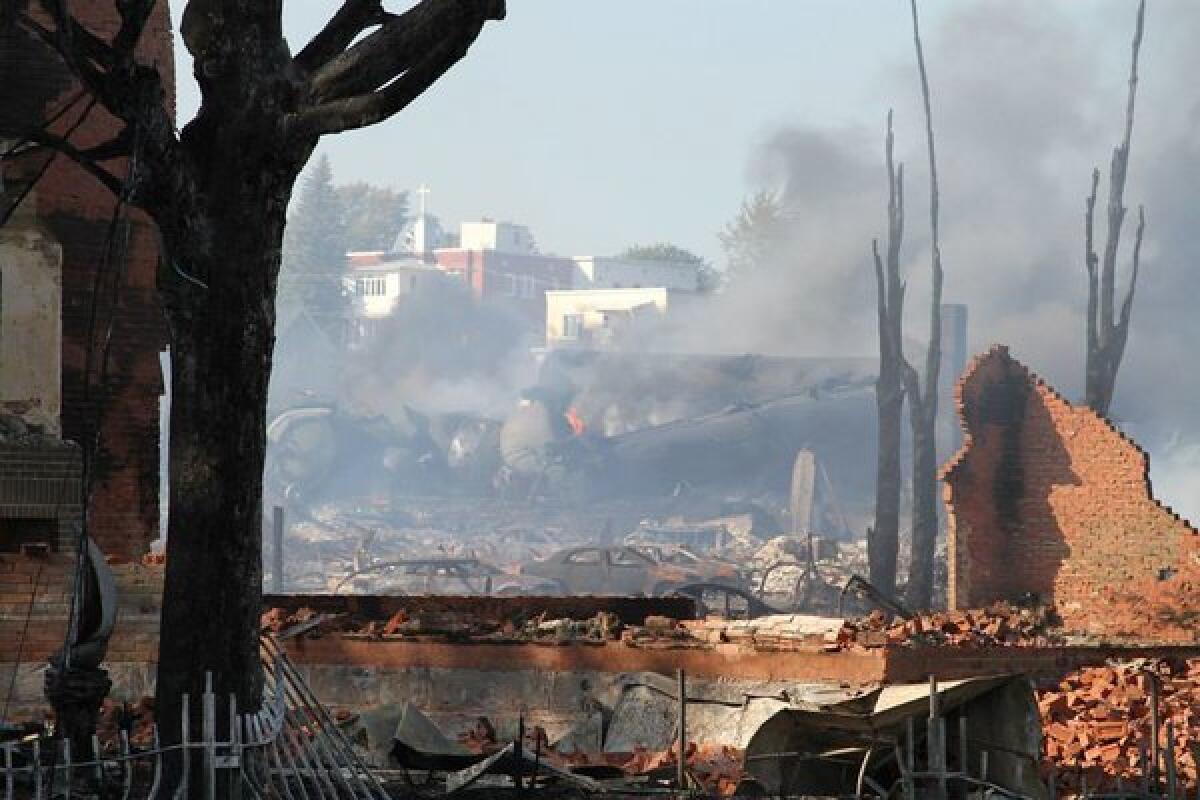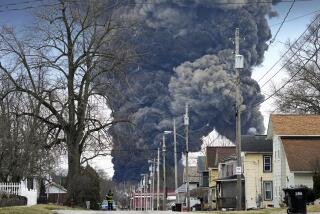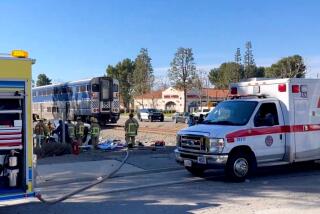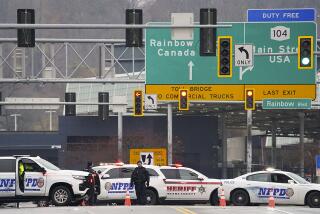Engineer in Canada rail disaster unfairly blamed, lawyer says

The train engineer on duty during the July 6 Canadian rail disaster that killed at least 50 people and incinerated the Quebec town of Lac-Megantic is devastated and in seclusion, his lawyer told Canadian journalists Tuesday.
Tom Harding, who was the sole Montreal, Maine & Atlantic Railway employee assigned to the doomed train at the time of the derailment and explosion, was put on unpaid leave by the rail company while investigators determine the cause of the worst train accident in the country in 150 years.
Edward Burkhardt, president and CEO of the railway’s parent company, Rail World Inc., speculated that Harding failed to set the brakes properly when he parked the train in the upland town of Nantes for the night and left it unmanned while he slept at a nearby inn after his shift.
“He’s not in jail, but police have talked about prosecuting him,” Burkhardt said of Harding when he visited devastated Lac-Megantic four days after the disaster. “I understand exactly why the police are considering criminal charges.... If that’s the case, let the chips fall where they may.”
According to earlier news reports, Harding left the train at 11:25 p.m. July 5, and a few minutes later firefighters were called to the idled rail convoy of 73 tanker cars, all but one of them filled with crude oil from North Dakota’s Bakken fields.
A small fire onboard was extinguished, but once the train was again unstaffed it began rolling downhill, gathering speed over the seven-mile downhill incline until it derailed in Lac-Megantic. At least five of the tankers exploded, engulfing the town center in an inferno so intense that the accident scene was still pulsating with heat when reporters visited Tuesday.
Harding’s lawyer, Thomas Walsh, told media getting their first close look at the disaster scene that his client was holed up with family but cooperating fully with the investigations.
“He’s quite aware of the extent of the tragedy, and the more he’s aware of it, the further he goes down in his morale,” Walsh told CBC News on Tuesday.
Walsh said his client was the victim of a rush to judgment in the accident’s emotional aftermath. He said he had advised Harding to refrain from discussing the accident with the media until the various federal, provincial and private investigations are concluded, the Globe and Mail reported.
The Toronto Star said in an editorial that the Lac-Megantic disaster illustrated the dangers of leaving a single individual to tend to “a train of thin-skinned tankers holding oil that was salvation for a company desperate for freight after the economic collapse reduced demand for the lumber it usually hauled.”
The accident has also renewed debate throughout North America on the relative hazards of shipping fuel by railroad tankers versus pipelines.
ALSO:
Israel approves more Egyptian troops in Sinai
Edward Snowden applies for temporary asylum in Russia
Concealed cargo in North Korean ship is missile parts, Jane’s says
More to Read
Start your day right
Sign up for Essential California for news, features and recommendations from the L.A. Times and beyond in your inbox six days a week.
You may occasionally receive promotional content from the Los Angeles Times.







